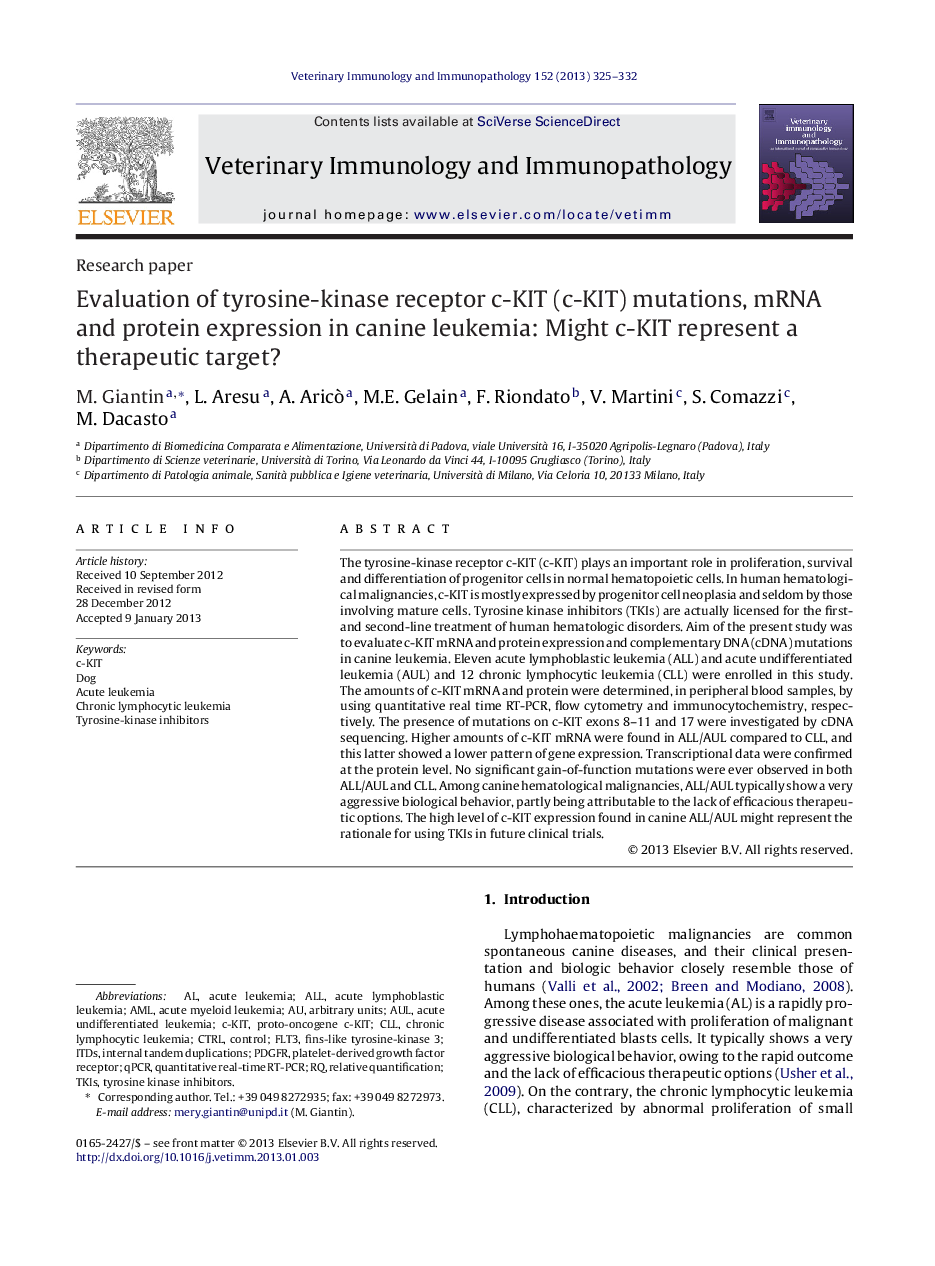| Article ID | Journal | Published Year | Pages | File Type |
|---|---|---|---|---|
| 2461719 | Veterinary Immunology and Immunopathology | 2013 | 8 Pages |
The tyrosine-kinase receptor c-KIT (c-KIT) plays an important role in proliferation, survival and differentiation of progenitor cells in normal hematopoietic cells. In human hematological malignancies, c-KIT is mostly expressed by progenitor cell neoplasia and seldom by those involving mature cells. Tyrosine kinase inhibitors (TKIs) are actually licensed for the first- and second-line treatment of human hematologic disorders. Aim of the present study was to evaluate c-KIT mRNA and protein expression and complementary DNA (cDNA) mutations in canine leukemia. Eleven acute lymphoblastic leukemia (ALL) and acute undifferentiated leukemia (AUL) and 12 chronic lymphocytic leukemia (CLL) were enrolled in this study. The amounts of c-KIT mRNA and protein were determined, in peripheral blood samples, by using quantitative real time RT-PCR, flow cytometry and immunocytochemistry, respectively. The presence of mutations on c-KIT exons 8–11 and 17 were investigated by cDNA sequencing. Higher amounts of c-KIT mRNA were found in ALL/AUL compared to CLL, and this latter showed a lower pattern of gene expression. Transcriptional data were confirmed at the protein level. No significant gain-of-function mutations were ever observed in both ALL/AUL and CLL. Among canine hematological malignancies, ALL/AUL typically show a very aggressive biological behavior, partly being attributable to the lack of efficacious therapeutic options. The high level of c-KIT expression found in canine ALL/AUL might represent the rationale for using TKIs in future clinical trials.
